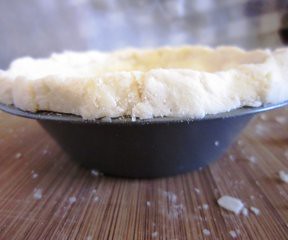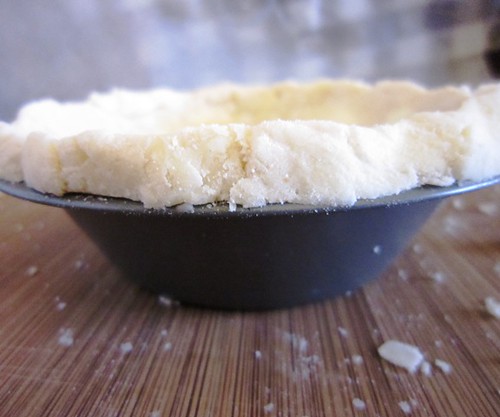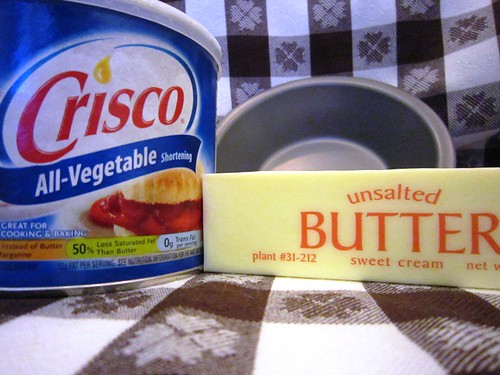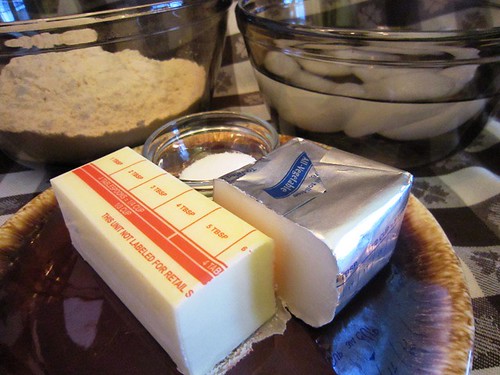When it comes to making pie crust, there are two distinct camps. There are those in Camp Shortening. Then there are those in Camp Butter. Rarely do people switch camps once they’ve pitched their tent.
To ask a camper in Camp Shortening to make a pie crust with butter is like asking a Girl Scout to sell candy. It’s not that she couldn’t do it. She is simply more comfortable selling cookies. At the end of the day, both Camp Fire girls and Girl Scouts are just selling sweets to go to camp.
Camp Crisco
This former Girl Scout is quite comfortable at Camp Crisco. Whenever I make pie crust, I usually go straight to the pie crust recipe on Crisco’s website. I’ve found it to be both tender and flaky every time I make it.
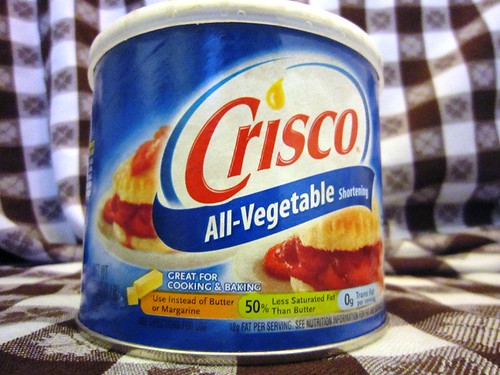
Camp Butter
There have been the occasional trips to Camp Butter. I do like the flavor of a butter crust, but find it harder to work with it. Shortening is softer, and easier to cut into the flour. Since butter is harder, I have to work harder to cut it into the flour, which results in a tougher crust.
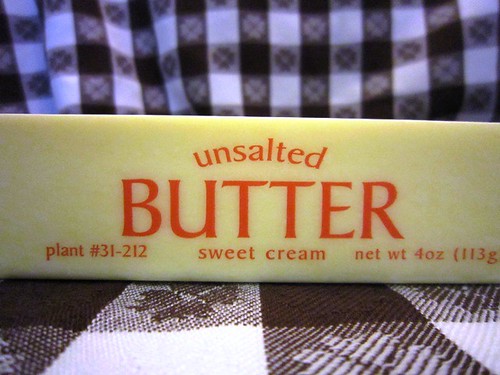
Camp Compromise
Today, I’m bringing the two camps together. Let’s see if shortening and butter can work together to make a pie crust that is both flaky and flavorful.
The Cast of Characters
Butter and shortening are both used in equal measure, 1/3 cup each, in this recipe. For a complete list of ingredients, skip to the end of this post.
The Play-by-Play
Sift together two cups flour and a teaspoon of salt.
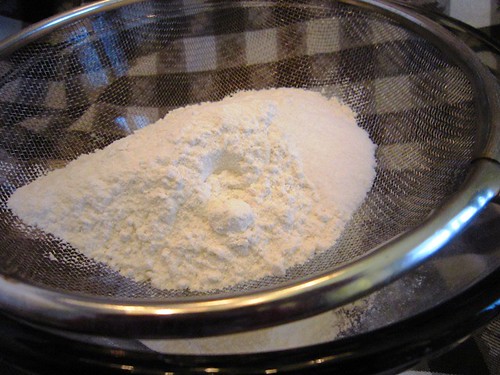
Cut one-third cup butter and one-third cup shortening into chunks.
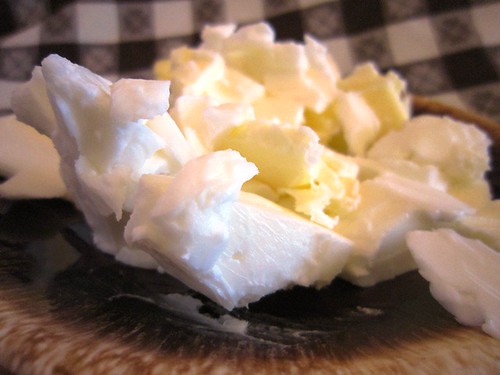
Add the butter and shortening to the flour and salt. Mix all together with a pastry blender, until the butter and shortening are pea-sized.
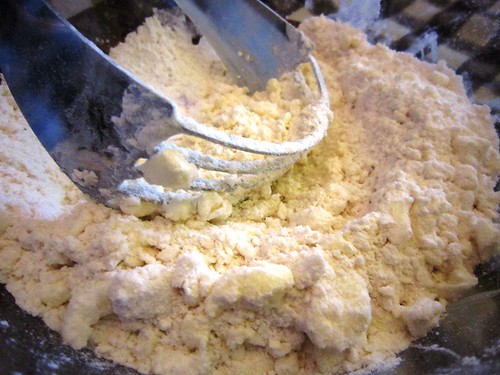
Add water to the mixture two or three tablespoons at a time, until you get to about 10 tablespoons, more or less depending upon the humidity in your kitchen. Lightly stir the water after each addition using a fork.
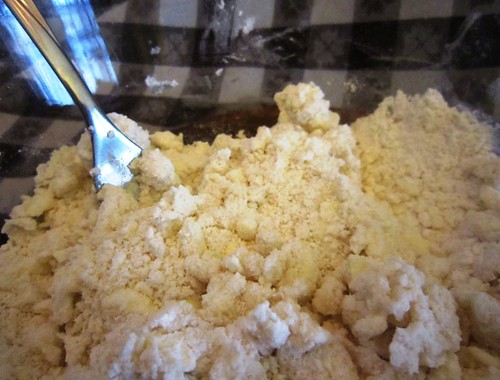
When there is enough water in the mixture, you will be able to shape the dough into a ball.
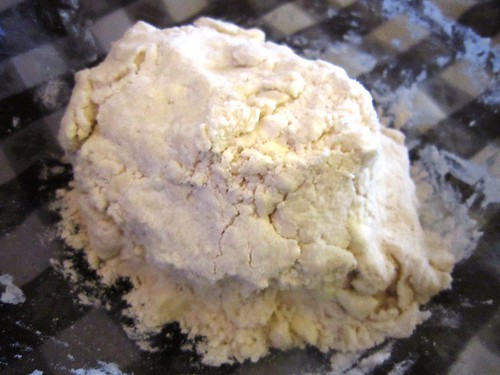
Wrap the dough ball in saran wrap, and chill it in the refrigerator for at least 30 minutes.
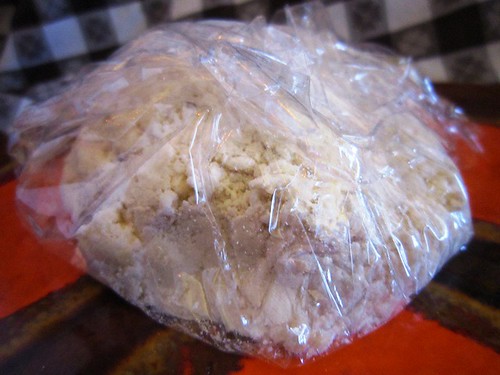
Place your dough between two pieces of wax paper, a tip I picked up from watching Alton Brown. Roll the dough to about a quarter inch thick, and about one inch wider than the top of your pie tin.
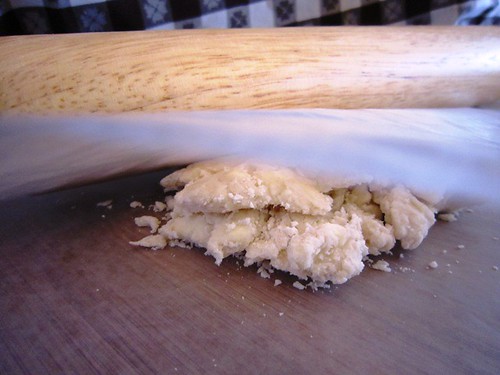
Remove the top layer of wax paper, and place your pie tin face down in the center of the pie dough.
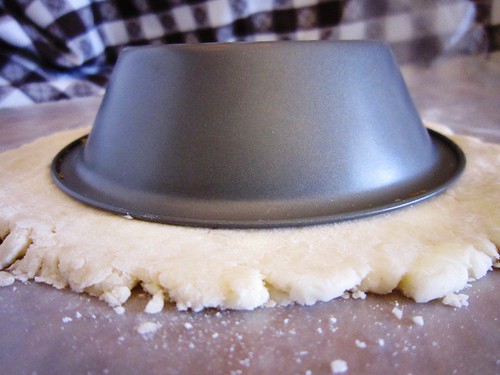
Doesn’t it look like the pie crust is wearing a fedora?
Flip the tin and crust over, and carefully remove the other sheet of wax paper.
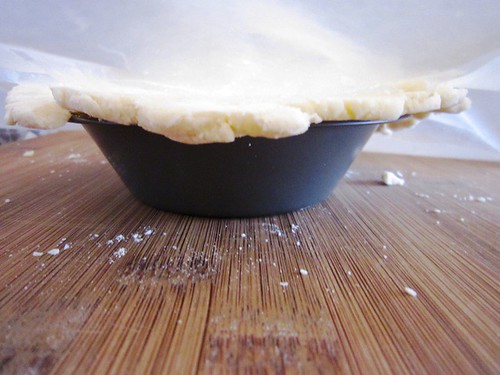
If the crust gets any tears or holes in it during the flip, just smooth them out by hand a bit in the pie tin. Pinch the edges of the crust to crimp them.
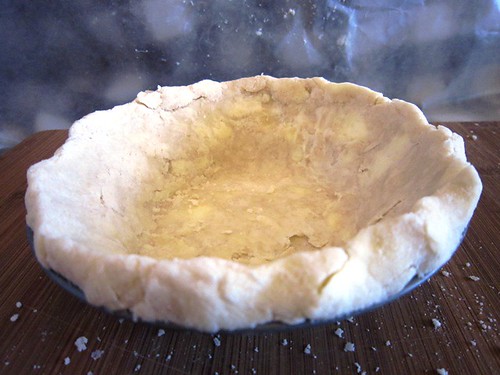
The Footnotes
- About the butter and shortening: Make sure they are cold when you make your pie dough.
- About the amount of water: You may need more or less than 10 tablespoons. It will depend on the humidity in your house. The more dry it is, add more water. The more humid, add less.
- About the wax paper trick: Sprinkle a little flour on your wax paper before putting down your dough. This will prevent it from sticking to the wax paper later.
The Recipe: Best of Both Worlds Pie Crust Recipe
Servings:
2 nine-inch pie crusts
Ingredients:
2 cups flour, sifted
1 teaspoon salt
1/3 cup shortening
1/3 cup unsalted butter
10 tablespoons water
Instructions:
- Sift together the flour and salt, and cut the butter and shortening into chunks.
- Add the butter and shortening to the flour and salt. Mix all together with a pastry blender, until the butter and shortening are pea-sized.
- Add water to the mixture two or three tablespoons at a time. Lightly stir the water into the mixture using a fork. Then shape the dough into a ball.
- Wrap the dough ball in saran wrap, and chill it in the refrigerator for at least 30 minutes.
- Place your dough between two pieces of wax paper. Roll the dough to about a quarter inch thick, and about one inch wider than the top of your pie tin.
- Remove the top layer of wax paper, and place your pie tin face down in the center of the pie dough.
- Flip the tin and crust over, and carefully remove the other sheet of wax paper. Smooth out any tears by hand, and pinch the edges of the crust to crimp them.
